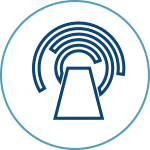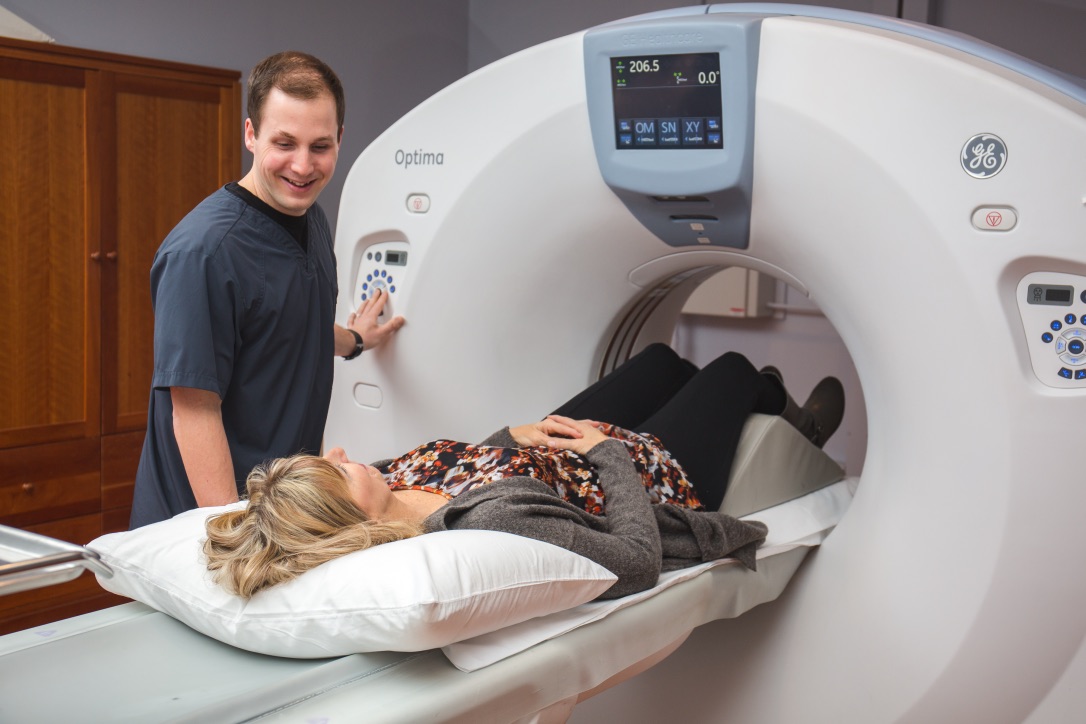CT

CT
A CT (computed tomography), also known as a CAT scan, is an imaging method that produces cross sectional images of the body. As you pass through the scanner, images of your body will be captured.
A CT is used to generate images of bones and soft tissue creating 3D images of body parts. A CT can be used to evaluate just about every part of the body. Some of the most commonly imaged areas are the brain, chest, blood vessels, lungs, arms, legs, abdomen and pelvis. Scans are completed in a matter of minutes.
Some patients that are unable to get an MRI can have a CT. Patients with pacemakers, cardiac pumps, or metal fragments in the eye may not be able to get an MRI. In these circumstances, a CT can normally be used to provide a diagnosis for these individuals. Read more here for the differences between an MRI and a CT.

What is a CT like?
Our low dose radiation CT scanner contains a padded bed on which you will lie during the exam. The bed will automatically pass through a large hole while the CT scanner captures images of the body. Our CT technologist will be in continual voice and visual contact with you. During the exam, you will be required to lie very still and hold your breath for just a few seconds. Exams usually last 10 minutes.
Is a CT safe?
At 611 MRI, patient safety is of the utmost importance. We work with your doctor and our radiologists to ensure that a CT is the appropriate imaging exam for you. We offer low dose radiation scans.
How do I prepare for a CT?
You may wear your own clothing if it contains no metal such as zippers, snaps, etc., near the body part being scanned. A good choice would be comfortable, loose-fitting clothes. If your clothing is unsuitable, a dressing gown will be provided.
What if my doctor orders contrast with my CT?
Contrast is an agent used to enhance images on certain exams. Your doctor and our radiologist determine if oral contrast or a contrast injection will be of benefit in obtaining an accurate diagnosis. If oral contrast is necessary for your test, you may need to drink barium the night before and the morning of the exam. We will provide the barium with instructions a few days before your test is scheduled. If a contrast agent is to be injected the technologist will do so intravenously.
Contrast typically leaves the body via urine within 24 hours. Allergic reactions to contrast agents are very rare and are typically treated with normal allergy medications. If you have further questions or concerns about contrast, a member of our medical staff will answer them.
Is there a weight limit?
Weight Limit for CT: 500 lbs
